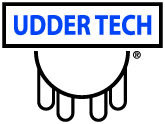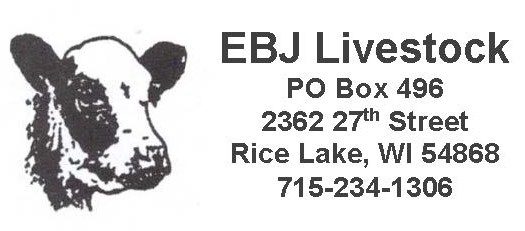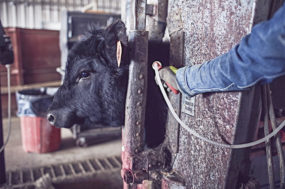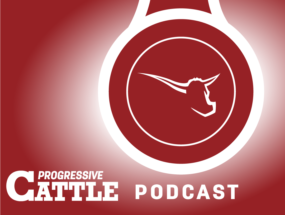Five months after Merck Animal Health temporarily suspended the sale of its beta agonist Zilmax over concerns of animal welfare, the company is uncertain if and when the product will go back on sale.
Last August, issues surfaced about immobile cattle arriving at packing facilities, and whether their lame-footed condition was a link to the use of Zilmax. After Tyson Foods issued a letter telling feeders it wouldn’t accept cattle finished on Zilmax, Merck decided to halt sales so it could re-evaluate its usage.
By the end of September 2013, Cargill, JBS and National Beef all followed Tyson lead and turned away cattle finished on Zilmax.
Zilmax, or zilpaterol hydrochloride, is fed in the final 20 days of finishing, with a three-day withdrawal period before slaughter. It adds typically 32 pounds of gain to steers and around 25 pounds to heifers, with much of that building more lean muscle on carcass weights.
Another beta agonist, Optaflexx made by Elanco Animal Health, has similar results but with less aggressive growth in carcass weights.
According to Dr. Chris Reinhardt, a feedlot specialist with Kansas State University, roughly 70 percent of fed cattle were receiving a beta agonist when Zilmax went off the market.
Now, almost half a year later, cattle prices are setting record pace and feedstuff prices are dropping. But the proven ability to enhance dressing percentages, and add around $35 to $40 a head through the use of Zilmax, remains untouched.
“It is too early to determine when Merck Animal Health will lift the temporary sales suspension of Zilmax in the United States and Canada,” said Kelly Goss, director of regional communications for Merck Animal Health.
What was lost
Speaking at the Idaho Beef Summit on Jan. 16, Dr. Kevin Hill, a Merck technical services veterinarian, said Merck’s five-point strategy launched by the company last August has actively been assembling data and analysis for the product’s use and safety.
But Hill indicated that more time may be necessary to complete a thorough review.
Hill said the five-point plan starts with recertifying all feeders, vets and nutritionists using Zilmax “to ensure the appropriate use of the product and make sure misuse isn’t part of the problem.”
Secondly, cattle already on Zilmax are reviewed for finishing and measured for quality assurance to the packing facility.
Third, Merck says “third-party verified audits will be conducted immediately to assess any difference in mobility between Zilmax-fed cattle and non-Zilmax fed cattle.” Hill said the number of cattle audited under this process is close to 65,000 head.
Fourth, the company’s advisory board from all segments of the industry is developing best management practices for nutrition, handling, transportation and low-stress environments in using the product.
Finally, Merck says it is committed to transparently sharing its information, audits and data with industry partners.
In the meantime, the industry will lose revenue as the feeding supplement stays off the market. Hill cited studies from Dr. Jude Capper that the wider industry loses $1.6 million per day in revenue since the product’s mid-August suspension, a total that reached $220 million in mid-January.
“Every time we feed 300 steers we have a food savings and consumption of feed drops a big amount when using Zilmax,” Hill said. “With the additional beef produced from one bag of Zilmax, we can save 2.25 semi loads of feed. We save 830 million gallons of water annually. And every bag of Zilmax means 15 fewer animals are needed for the same amount of beef.”
Hill repeated the company’s claim – and the packers’ affirmation – that the issue was not related to food safety, but animal welfare.
“They were careful to say they really didn’t have hard evidence Zilmax was the issue. But they felt there was that perception (among packers) that ‘we’ve been taking more Zilmax cattle and we’ve got more lameness – so it’s logical those two things go together.’”
“We don’t think that’s very logical,” Hill said of Merck. “We can’t find any evidence that that’s true. But perception is reality isn’t it?”
Reviewing the usage
Merck, which made $159 million in revenue through Zilmax sales in 2012, chose to take the comprehensive route in re-evaluating the product, Hill said, “to basically let everybody take a breath and take assessment.”
So when will producers actually see the product back in the feeder supply?
Reinhardt said the lameness issue hit the radar with the extreme heat in 2011 and 2012, and to a lesser extent in the summer of 2013, as late-term summertime mortality grew more rampant in midwest plains states.
Reinhardt said the incidents involving impaired cattle mobility could involve any of a number of factors including extreme heat events, heavy finished cattle, predominantly black-hided color, and additional days on feed. But because the mobility issues surfaced in summer, more analysis during that season will be required to conclusively rule out certain factors.
“Until we have some heat again, we really can’t plan any investigations into what happened or what the predisposing factors were,” Reinhardt said.
“We know it’s not just beta agonists and not just heat. It’s what we do to cattle during heat, and certain cattle may be more susceptible to the heat. How are we handling the cattle prior to day of harvest? Are we doing it in the best manner possible?
“It’s my belief the beta agonists are at most a contributing factor, but they are not the smoking gun that a lot of people painted them when this all culminated. It’s much more complex than a single-type issue.”
Hill said temperature and cattle type are certainly areas being reviewed.
“If we find some association with temperature and increased issues, then a possible recommendation may be don’t feed it during these time periods. The black-hided fat heifer is the target that’s had the most health issues in late feeding. But I don’t know if that’s true today.”
When asked if the product is expected to return, Hill said, “Some days I’m really optimistic, and other days I’m pretty discouraged, but I’m mostly optimistic. We’re going to do everything we can to get the information to try and make everyone happy. At the same time you realize you never can make everyone happy. So there’s going to come a point where we say, ''we’ve done everything we can, Zilmax is now available.'
“But the key thing is there has got to be at least one packer step up and say, 'We’re willing to take Zilmax cattle.' There’s not a feeder in the world willing to make that commitment unless they’re willing to (take) them.” ![]()







